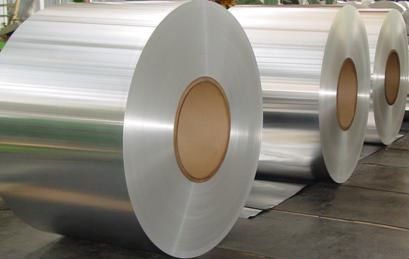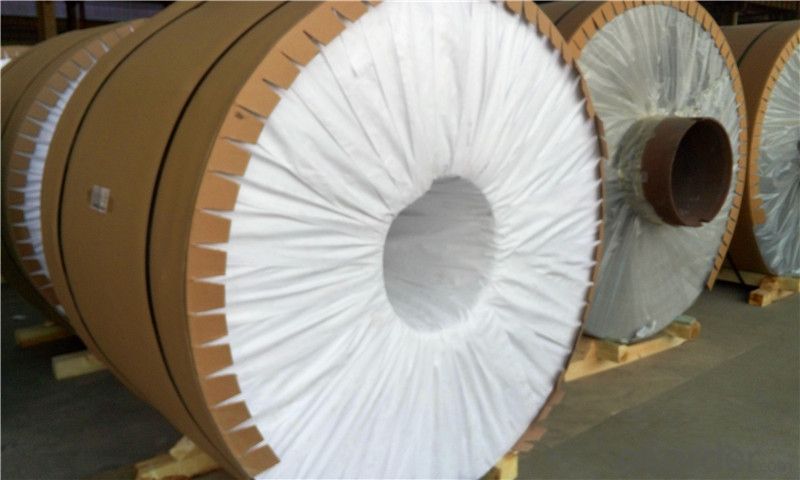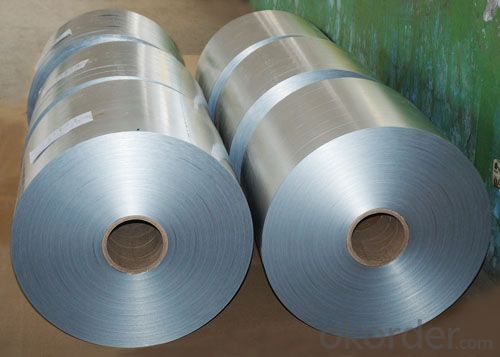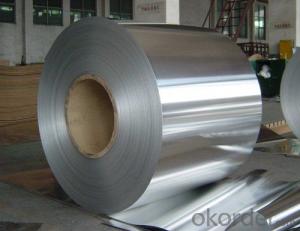1050 1100 3003 5052 5754 5083 6061 7075 H24 Metal Alloy Aluminum Sheet
- Loading Port:
- Shanghai
- Payment Terms:
- TT OR LC
- Min Order Qty:
- 2 m.t.
- Supply Capability:
- 6000 m.t./month
OKorder Service Pledge
OKorder Financial Service
You Might Also Like
Item specifice
1050 1100 3003 5052 5754 5083 6061 7075 H24 Metal Alloy Aluminum Sheet
Packaging & Delivery
Name | 3003 Aluminum Coil |
ALloy or Not | Yes |
Alloy | 1100H-18, 3003-H24,3003-H26,3005-H26,8011,3004,3105,5005,etc. |
Thickness | 0.1~1.5mm |
Width | <2000mm< span=""> |
MOQ | 1 MT |
Coating finish | Brushed, drawing, embossed, printing |
Color | As to code RAL |
Surface | Embossed,Mill Finish,Coated,Brushed |
Gloss | 10-90%(EN ISO-2813:1994) |
Total coating thick | PVDF27 ~35micron |
Polyester18~27micron(EN ISO-2360:1995) | |
Coating hardness | 2H |
Adhesion | 5B (EN ISO-2409:1994) |
Impact resistance | No cracking and peeling (A.S.T.M D2794-1993) |
Flexibility (T-bend) | 0T- 2T |
MEK resistance | 100 |
Certification | ISO9001:2000, CE, SGS |
Coil's standard diameter | 1100mm |
Inner Diameter | 405mm/505mm |
Coil's standard weight | 1MT - 2MT |
Product Specification | |
Grade | 1000 Series: 1050 1060 1100 3000 Series: 3003 3004 3105 5000 Series: 5052 5605,5083 6000 Series: 6061 6063 8000 Series: 8011 8021 8079 |
Thickness | 0.20-8.00mm |
Width | 2400mm max. |
Grade | 1000,3000,5000,6000,8000series |
Coil ID | 75mm, 150mm, 200mm, 300mm, 400mm, 508mm or negotiable |
Coil weight | 1000-5000kgs |
Coil OD | 1700mm max. |
Temper | O, H12, H14, H16, H111, H22 ,H24, H26, H28,T4, T6,etc. |
Chemical Composition | |||||||||
| Grade | Si | Fe | Cu | Mn | Mg | Cr | Ni | Zn | Al |
| 1050 | 0.25 | 0.4 | 0.05 | 0.05 | 0.05 | - | - | 0.05 | 99.5 |
| 1060 | 0.25 | 0.35 | 0.05 | 0.03 | 0.03 | - | - | 0.05 | 99.6 |
| 1070 | 0.2 | 0.25 | 0.04 | 0.03 | 0.03 | - | - | 0.04 | 99.7 |
| 1100 | Si+Fe:0.95 | 0.05-0.2 | 0.05 | - | - | 0.1 | - | 99 | |
| 1200 | Si+Fe:1.00 | 0.05 | 0.05 | - | - | 0.1 | 0.05 | 99 | |
| 1235 | Si+Fe:0.65 | 0.05 | 0.05 | 0.05 | - | 0.1 | 0.06 | 99.35 | |
| 3003 | 0.6 | 0.7 | 0.05-0.2 | 1.0-1.5 | - | - | - | 0.1 | remains |
| 3004 | 0.3 | 0.7 | 0.25 | 1.0-1.5 | 0.8-1.3 | - | - | 0.25 | remains |
| 3005 | 0.6 | 0.7 | 0.25 | 1.0-1.5 | 0.20-0.6 | 0.1 | - | 0.25 | remains |
| 3105 | 0.6 | 0.7 | 0.3 | 0.30-0.8 | 0.20-0.8 | 0.2 | - | 0.4 | remains |
| 3A21 | 0.6 | 0.7 | 0.2 | 1.0-1.6 | 0.05 | - | - | 0.1 | remains |
| 5005 | 0.3 | 0.7 | 0.2 | 0.2 | 0.50-1.1 | 0.1 | - | 0.25 | remains |
| 5052 | 0.25 | 0.4 | 0.1 | 0.1 | 2.2-2.8 | 0.15-0.35 | - | 0.1 | remains |
| 5083 | 0.4 | 0.4 | 0.1 | 0.40-1.0 | 4.0-4.9 | 0.05-0.25 | - | 0.25 | remains |
| 5154 | 0.25 | 0.4 | 0.1 | 0.1 | 3.1-3.9 | 0.15-0.35 | - | 0.2 | remains |
| 5182 | 0.2 | 0.35 | 0.15 | 0.20-0.50 | 4.0-5.0 | 0.1 | - | 0.25 | remains |
| 5251 | 0.4 | 0.5 | 0.15 | 0.1-0.5 | 1.7-2.4 | 0.15 | - | 0.15 | remains |
| 5754 | 0.4 | 0.4 | 0.1 | 0.5 | 2.6-3.6 | 0.3 | - | 0.2 | remains |
| 6061 | 0.40-0.8 | 0.7 | 0.15-0.40 | 0.15 | 0.8-1.2 | 0.04-0.35 | - | 0.25 | remains |
| 6063 | 0.20-0.6 | 0.35 | 0.1 | 0.1 | 0.45-0.9 | 0.1 | - | 0.1 | remains |
| 6082 | 0.7-1.3 | 0.5 | 0.1 | 0.40-1.0 | 0.6-1.2 | 0.25 | - | 0.2 | remains |
| 6A02 | 0.50-1.2 | 0.5 | 0.20-0.6 | Or Cr0.15-0.35 | 0.45-0.9 | - | - | 0.2 | remains |
| 8011 | 0.50-0.9 | 0.6-1.0 | 0.1 | 0.2 | 0.05 | 0.05 | - | 0.1 | remains |



- Q:What is a common reaction of this element?What is another element closely related to Aluminum?Thank youuuuu.
- Al + Cl2 --- AlCl3 aluminum trichloride is an important substance used in several organic chemical reactions of indistrial importance. It is what is called a Lewis acid, something you will get to. Possibly gallium, just below it in the periodic table.
- Q:What are the potential applications of coil-annealed aluminum coils?
- Coil-annealed aluminum coils possess a wide array of potential applications across diverse industries. One example lies within the automotive sector, where these coils can be utilized to fabricate lightweight parts and components for vehicles. The inherent lightness of aluminum renders it an ideal material for enhancing fuel efficiency and reducing emissions. This makes it possible to manufacture body panels, chassis components, and structural parts for automobiles. Another field that can benefit from coil-annealed aluminum coils is the construction industry. These coils can be employed in the production of roofing, siding, and wall cladding materials. The corrosion-resistant properties of aluminum render it a suitable choice for applications exposed to outdoor elements, where durability is paramount. Furthermore, the lightweight nature of aluminum simplifies handling and installation, thereby mitigating labor and transportation costs. The packaging industry also holds promise for coil-annealed aluminum coils. Aluminum proves to be an excellent material for food and beverage packaging due to its non-toxic, odorless, and impermeable attributes. Consequently, these coils can be utilized to manufacture cans, foil wraps, and pouches, providing a safe and hygienic packaging solution. Furthermore, the electrical and electronics industry can leverage coil-annealed aluminum coils. Aluminum boasts exceptional electrical conductivity, making it suitable for power transmission lines, electrical components, and heat sinks for electronic devices. Its lightweight nature further facilitates handling and installation in various electrical applications. In summary, coil-annealed aluminum coils offer versatility, durability, and lightweight properties that make them an excellent choice for a multitude of manufacturing needs across various industries. From automotive to construction, packaging to electrical, the applications for these coils are diverse and far-reaching.
- Q:Are there any specific maintenance requirements for aluminum coils?
- Yes, aluminum coils require regular maintenance to ensure optimal performance and longevity. Some specific maintenance requirements for aluminum coils include cleaning them regularly with a mild detergent and water solution, removing any debris or dirt that may accumulate on the coils, inspecting for any signs of corrosion or damage, and ensuring proper airflow around the coils by keeping the surrounding area clear. Additionally, it is important to schedule professional maintenance and tune-ups to check for refrigerant leaks or any other issues that may affect the performance of the aluminum coils.
- Q:Which is more unhealthy the bleached parchment paper or the aluminum from the pan?
- This is an easy question to answer. Parchment paper, bleached or unbleached is safer than using aluminum cookware. Unbleached parchment paper is safer than bleached parchment paper. . Cooking parchment is a sheet of bleached or unbleached paper impregnated with silicone. The silicone makes it releasable, that is, food won’t stick to it. . The use of bleached parchment is problematical. It might leach dioxin. It may leach dioxin. Hard to know for sure. The silicon has some sealing effect on the paper. To be absolutely safe, use unbleached parchment. . I use parchment paper to cook chicken in a George Forman Mini Roaster. I fold the perimeter, put the chicken in, punch a hole over the drain hole, fold the ends and side over the chicken, and voila...no major clean up, perfectly cooked moist chicken. . The safest cooking material is silicone baking sheets. Silicone sheets are good for cookies and stuff (and save trees) . If you’re worrying about dioxin leaching out of parchment, you might want to start worrying about the toilet paper you use. . Exposure to aluminum causes health problems. I learned that many years ago (about 1944) from Mr. Stern, my chemistry teacher. Aluminum salts from aluminum cookware can leach from the pot into the food being cooked in them, especially if the food is acidic. . The same prohibitions apply to cooking with aluminum foil. If you must use it to cook with, make a tent so the foil does not come in contact with the food. . Aluminum cookware is prohibited for sale in many European countries. It’s permitted in the United States because good aluminum cookware sold today is anodized (a process that seals the aluminum by changing it’s molecular structure. . Avoid cookware covered with a non-stick coating.
- Q:Are parakeets allergic to aluminum because I wanted to use a metal pie pan for a bird bath.
- ask a nice bird vet
- Q:Are there any limitations to the minimum coil length of aluminum coils?
- Yes, there are limitations to the minimum coil length of aluminum coils. The minimum coil length is determined by various factors such as the manufacturing process, equipment capabilities, and the intended use of the coils. One limitation is the size and capacity of the manufacturing equipment. Most coil production lines have a minimum length requirement to ensure efficient operation and to prevent damage to the coils during the manufacturing process. If the coil is too short, it may not be properly processed or handled by the equipment, leading to production issues or product defects. Another limitation is the intended use of the coils. Certain applications may require a minimum coil length to meet specific requirements or to ensure optimal performance. For example, in industries such as construction or automotive, coils are often used to make components or structures that have specific length requirements. In such cases, the minimum coil length is determined by the specifications of the end product. Additionally, handling and transportation considerations also play a role in determining the minimum coil length. Coils that are too short may be more difficult to handle, transport, or store, making them less practical or cost-effective. In summary, the minimum coil length of aluminum coils is subject to limitations imposed by manufacturing equipment capabilities, intended use, and practicality in terms of handling and transportation. These limitations ensure efficient production processes, adherence to product specifications, and practicality in the overall supply chain.
- Q:How do aluminum coils contribute to sustainable energy systems?
- There are several reasons why aluminum coils are crucial in sustainable energy systems. Firstly, aluminum is a lightweight metal that conducts electricity well, making it ideal for producing coils used in renewable energy technologies like wind turbines, solar panels, and electric vehicles. By using aluminum coils, these systems become more efficient and perform better due to the reduced weight. Secondly, aluminum is abundant in nature and can be recycled multiple times without losing its original properties. This results in significant energy savings and less environmental impact. By using aluminum coils, sustainable energy systems can reduce their reliance on new materials and support a circular economy. Furthermore, aluminum coils are resistant to corrosion and have excellent heat transfer properties. This makes them highly durable and capable of withstanding harsh weather conditions, ensuring the longevity and reliability of renewable energy systems. The durability of aluminum coils also reduces the need for frequent maintenance or replacements, minimizing waste generation and conserving resources. Moreover, aluminum is a non-toxic material that poses minimal risks to human health and the environment. Unlike other metals, aluminum does not release harmful substances into the soil or water. This makes it a safe choice for sustainable energy systems. Lastly, the use of aluminum coils in sustainable energy systems helps to reduce greenhouse gas emissions. Due to its lightweight nature, aluminum requires less energy for transportation and installation, thereby reducing the carbon footprint associated with manufacturing and installation processes. Additionally, the increased efficiency and performance of renewable energy systems using aluminum coils contribute to the displacement of fossil fuel-based energy generation, leading to a decrease in overall carbon emissions. In conclusion, aluminum coils play a significant role in sustainable energy systems by improving the efficiency, durability, recyclability, and environmental friendliness of renewable energy technologies. Their lightweight nature, resistance to corrosion, and excellent heat transfer properties make them suitable for various applications. Additionally, their abundance and recyclability support resource conservation and a circular economy. By using aluminum coils, sustainable energy systems can reduce their environmental impact, enhance performance, and contribute to a cleaner and more sustainable future.
- Q:Are aluminum coils suitable for high-strength applications?
- No, aluminum coils are not typically suitable for high-strength applications. Aluminum has lower tensile strength compared to other metals like steel, making it less ideal for high-stress or heavy-duty applications where strength is a critical factor.
- Q:Can aluminum coils be used in electrical transmission systems?
- Yes, aluminum coils can be used in electrical transmission systems. Aluminum is a commonly used material in electrical transmission systems due to its favorable electrical conductivity, high strength-to-weight ratio, and cost-effectiveness compared to other materials such as copper. Aluminum coils are used in transformers, motors, generators, and other electrical devices. Additionally, aluminum coils are lightweight, which makes them easier to handle and install in transmission systems. However, it is important to consider that aluminum has a lower electrical conductivity than copper, so larger cross-sectional areas may be required to achieve the same electrical performance. Proper design and engineering practices should be followed to ensure that aluminum coils are appropriately sized and connected in electrical transmission systems to maintain efficiency, reliability, and safety.
- Q:Can aluminum coils be used for heat transfer applications?
- Indeed, heat transfer applications can utilize aluminum coils. The commendable thermal conductivity of aluminum renders it remarkably efficient in transferring heat. In multiple heat transfer applications like air conditioning systems, refrigeration units, and heat exchangers, aluminum coils are frequently employed. The lightweight nature of aluminum, coupled with its resistance to corrosion, further contributes to its widespread preference in these applications. Moreover, the malleability of aluminum coils allows for the facile shaping and forming, thereby facilitating efficient heat transfer even in intricate systems.
1. Manufacturer Overview |
|
|---|---|
| Location | |
| Year Established | |
| Annual Output Value | |
| Main Markets | |
| Company Certifications | |
2. Manufacturer Certificates |
|
|---|---|
| a) Certification Name | |
| Range | |
| Reference | |
| Validity Period | |
3. Manufacturer Capability |
|
|---|---|
| a)Trade Capacity | |
| Nearest Port | |
| Export Percentage | |
| No.of Employees in Trade Department | |
| Language Spoken: | |
| b)Factory Information | |
| Factory Size: | |
| No. of Production Lines | |
| Contract Manufacturing | |
| Product Price Range | |
Send your message to us
1050 1100 3003 5052 5754 5083 6061 7075 H24 Metal Alloy Aluminum Sheet
- Loading Port:
- Shanghai
- Payment Terms:
- TT OR LC
- Min Order Qty:
- 2 m.t.
- Supply Capability:
- 6000 m.t./month
OKorder Service Pledge
OKorder Financial Service
Similar products
New products
Hot products
Hot Searches
Related keywords




























